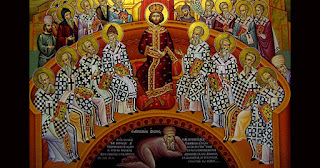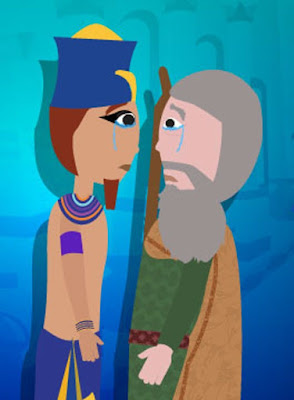The Dangers of Arianism
If we look back through church history, we see many pivotal points where the orthodoxy of the scripture comes into a head on collision with false teaching. From a door in Wittenberg, to the battle of inerrancy in the late 20th century.
While the church has dealt with false teaching from the beginning, a major force shook the church in the 3rd century. As Gonzalez points out, this creeping of false doctrine, "may be seen in the Arian controversy”. (Gonzalez p.182)
A bishop in Egypt, had begun to propagate, “that the Word was not coeternal with the Father” (Gonzalez p.184)
He was literally arguing against the eternal existence of the Son of God. He and his followers would attempt to convince others of this teaching that, “there was a time when He [the Son] was not”, and it was this phrasing which would become their motto.
In the past doctrinal errors, the church would argue with, and “win such a debate was through solid argument and holiness of life.” (Gonzalez p.181) but the political climate under the emperor Constantine had change things significantly.
Since the relief persecution, and the acceptance of Christianity, it had become possible to “invoke the authority of the state to settle a theological question” (Gonzalez p.181).
The church would go to bat against error with scripture, but this time on the uneven grounds of politics.
As a result of this, the Arians had changed their strategy, they had now set their sights much higher. González states that “rather than seeking to convince their opponents or the rest of the church, sought to convince the emperors”. (Gonzalez p.182).
The followers of Arian were seemingly successful in changing the way of debate, and succeed in their goal of swaying the political forces of the day to side with them. Even though those at Nicaea had accomplished keeping the teaching true to the teachings of scripture, Eusebius of Nicomedia who had become a main proponent of this new teaching, “was an able politician” (Gonzalez p. 190) and kept his sights towards the emperor.
It was due to this political maneuvering that Jerome would later say, “The entire world woke from a deep slumber and discovered that it had become Arian”.
Fundamentally, the Arian movement should be a two-fold warning to the church in modern times.
We must stay true to the doctrine of scripture no matter the voices of popular opinion. Unlike Arianism which, “had become increasingly technical and abstract. Among its defenders were many who had been trained in the best of Greek logic, and who therefore offered ever subtler arguments in defense of their position”. (Gonzalez p. 205)
It was the exclusivity of scripture that caused Athanasius and others to teach that, “The work of salvation is no lesser than the work of creation. Therefore, the one responsible for our re-creation can be no lesser than the one responsible for our creation”. (Gonzalez p. 205)
Secondly, we must ensure that we are keeping any teachings, and any disagreements in the church.
The battle against Arianism displayed a dangerous precedent in mixing religious believes with politics,and that is ultimately it faded in popularity as the rulers that held it faded from the pages of history.
By the providence of God, it was those that held the truth
in the face of political pressure and banishment that were used to keep the
church pure of this false doctrine. By continuing to hold to the truth in the
church, “most of the church rallied in its support of the Council of Nicaea,
whose doctrine was eventually ratified at the Second Ecumenical Council,
gathered in Constantinople in 381 CE”. (Gonzalez p.208)





Comments
Post a Comment